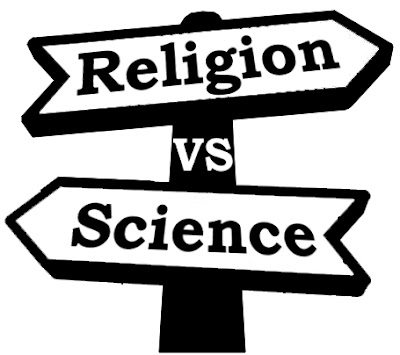What is Reality is a question that we often ask ourselves
and both Science and Religion tries to give an explanation to it. While both
are different from one another both tries to answer the same questions of
universe but in different manner.
John F. Haught has offered the following metaphor as a
way of conceiving of their relationship. If you were to walk into a room to
find a pot of water boiling on a stove top and were to ask someone why the
water was boiling, they might answer that an electric current is passing
through the iron coil beneath the pot, exciting the atoms in the coil, causing
them to radiate heat. This heat is being transferred to the pot, and from the
pot to the water, where water molecules are becoming super-heated, turning into
gas and then bubbling up to the surface of the water. From all the knowledge we
have gathered over time in Science this explanation stands completely accurate.
But someone else might answer that the water is boiling
because some person say Ashish wanted to drink some tea. This too is perfectly
good answer to the question.
The first explanation corresponds to the work of
scientists and the second to the work of theologians. No matter how closely you
study the pot of water and run empirical tests to support it, there is no
property of boiling or water itself that could tell you that its boiling is
connected to the intentions and (unobserved) actions of thirsty Ashish. So you
see there is no empirical investigation that could prove or disapprove
theological answers about the motive or objective of God in the universe.
(Of course, certain types of "theological"
claims can be disapproved by science. But I don't believe that those claims are
theological in the best of its intention. An instance of this would be young
earth creationists who claim the earth is only six thousand years old - this
type of claim is easily and quickly falsifiable. What is not empirically
falsifiable OR provable is that God exists, and that creation exists because he
intends it to and has purposes for it that are currently being worked out.)
Just because something is not observable or empirically
verifiable does not mean it is not true. To adopt a purely empirical
epistemology is to deny the reality not only of God but of your own existence as
a conscious subject. Consciousness, as such, is not observable. From a purely
empirical point of view, your conscious self is the "byproduct" of
the chemical and electrical transactions occurring in your brain and is not
ontologically "real" - that is there is no "I" (again, from
a purely empirical standpoint) that exists - your experience of being an
autonomous and undifferentiated, thinking subject is a kind of illusion – for
Empirical Examination can never explain an individual as a whole. Another way of
saying it is that, empirically speaking, you do not HAVE thoughts (what, after
all, is the "you" which would have them), rather your sense of being
a subject which "has" thoughts is just a feature of your mind's
physical processes.
It is absurd, however, to doubt that you exist as an
autonomous thinking subject - to have that thought is to disprove it. This
gives us warrant to attribute ontological significance to things that cannot be
empirically observed.
Objection is ordinary, though, and people may say that to
believe in something that cannot be empirically observed is, unjustified. But I
would simply ask another question to them. On what empirical basis do they
propose that only empirically observable realities exist? That proposition does
not have an empirical foundation - it is an assumption. There's nothing wrong
with that - we all have them - they are, in fact, unavoidable. But empirically
speaking, there is nothing better about the proposition that only empirically
observable things are real than the proposition that there are realities that
cannot be empirically verified.
Actually there
is no conflict between religion and science, except for when religion tries to
deny what science has been proven empirically or when science unempirically
claims that only empirical things exist. If scientists and theologians can
refrain from these bad and self-refuting behaviors, they can coexist much as
those two explanations for the boiling water coexist.

Very well framed topic and deep thinking of the author
ReplyDeleteGood article. Worth a read.
ReplyDeleteExcellent way to explain
ReplyDeleteGood content
ReplyDelete